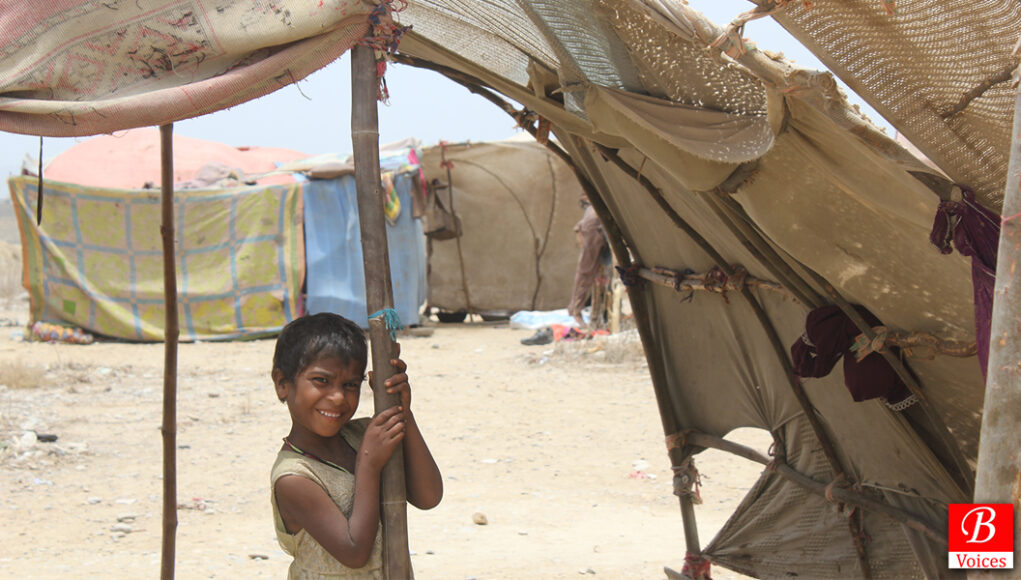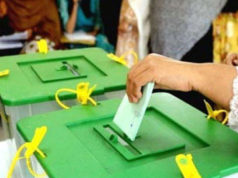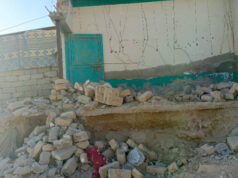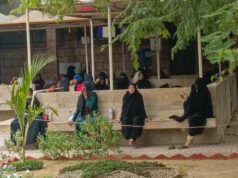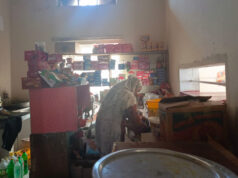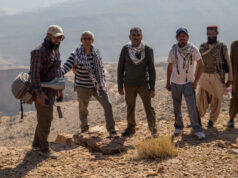Ayaz Khan
70-year-old Popat brought his family to Hub, Balochistan, from Sindh at the start of June. He belongs to the Bagri caste, one of the 41 scheduled castes in Pakistan according to the Scheduled Castes Ordinance 1957.
Along the bank of River Hub, are 10 wooden jhogis (huts) inhabited by 10 Bagri families, Popat’s family making it 11 now. Weakened by old age, Popat could hardly put up 4 jhogis, built with sewn pieces of clothes and sticks joined together to form a tent, to shelter his family. The jhogis can barely resist the scorching waves of the sun as they are porous forcing Popat to take up arms against the blistering temperature at noon and the mosquitoes at the night.
Many nomadic tribes belonging to scheduled castes have been traveling to Balochistan for years and some have settled on the outskirts of the cities permanently. Like Popat, numerous other families have been deprived of land rights. In the absence of policies that could facilitate and provide nomadic scheduled castes with lands to settle and live without the fear of being ousted by the owners, they are left to live a life devoid of basic amenities. For the Bagris, access to potable water, health, and education is coupled with hindrances.
“When I first came here and tried to settle on this land (the land along the Hub River), I implored the owner for allowing me to put my jhogi. He agreed with the proviso that I would leave when the land is sold or the owner wished so,” Jamna, a mother and patron of a family, says, adding that: “but after few months I had settled my family here, an influential person called in 4 police vans and they dragged my husband from the collar and threw him in the van. The person wanted us to vacate the land and threatened us with dire consequences claiming that the land was his property. I called the owner and he sorted out the issue. However, when the police came back to release my husband, my children cried in fear believing that the police were there to beat them again.”
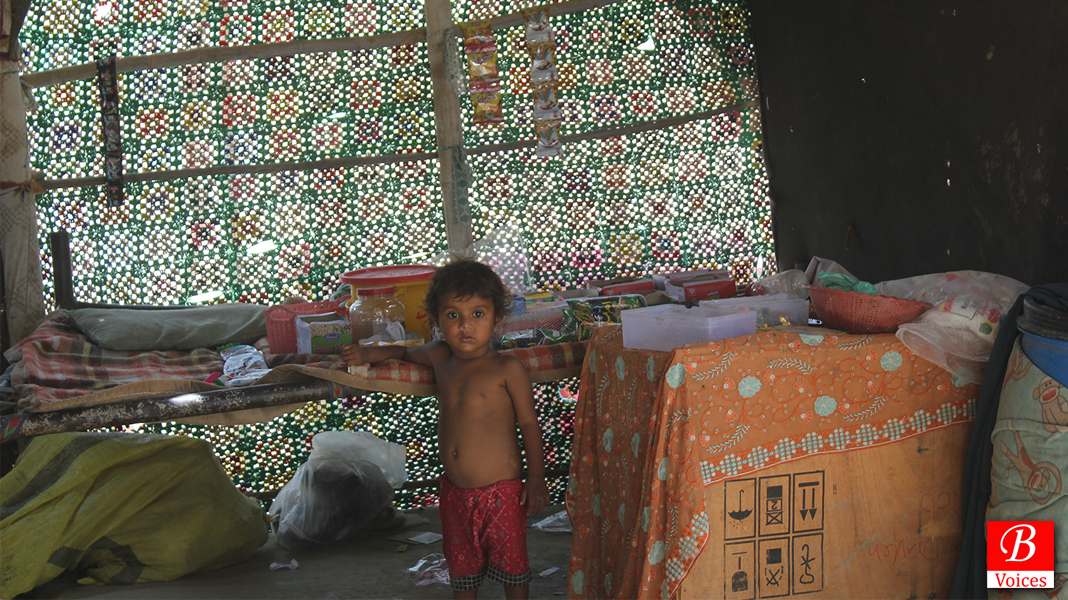
Ram, who sells toys and balloons in the market as a source of his livelihood, says that they were told to evacuate the land during monsoon rains in 2017 as they lived on land prone to flooding. “The sudden call for vacating the land,” narrates Ram, “was a bolt from the blue and we told the authorities where else we could move to as it was hard to find a land to settle as immediately as the directives from the authorities came.”
Bagris, one of the many scheduled castes, originate from Sindh, particularly dwelling in Thar among other cities. In fact, the search for livelihood is the prime factor behind the caste’s inter-provincial migration, but lack of land ownership has left them struggling with acquiring fundamental rights such as water, education, and electricity. Bagris depend on begging, shoe polishing, and selling toys and balloons to earn sustenance and make the ends meet.
Ram Lal, a male member of a Bagri family, complains: “We are left at the mercy of blistering heat. None of our jhogis has got a fan installed. This is because of not having electricity connections. We fall out of the circle of privileged ones since we haven’t got land to live on permanently.”
According to Deputy General Secretary Pakistan Youth Forum (PYF) and co-founding member of Hindu rights-based newspaper ‘Sandesh’, Mukesh Megwar, the issue of land rights for scheduled castes has never been given due concentration neither by parliamentarians nor by Civil Society.
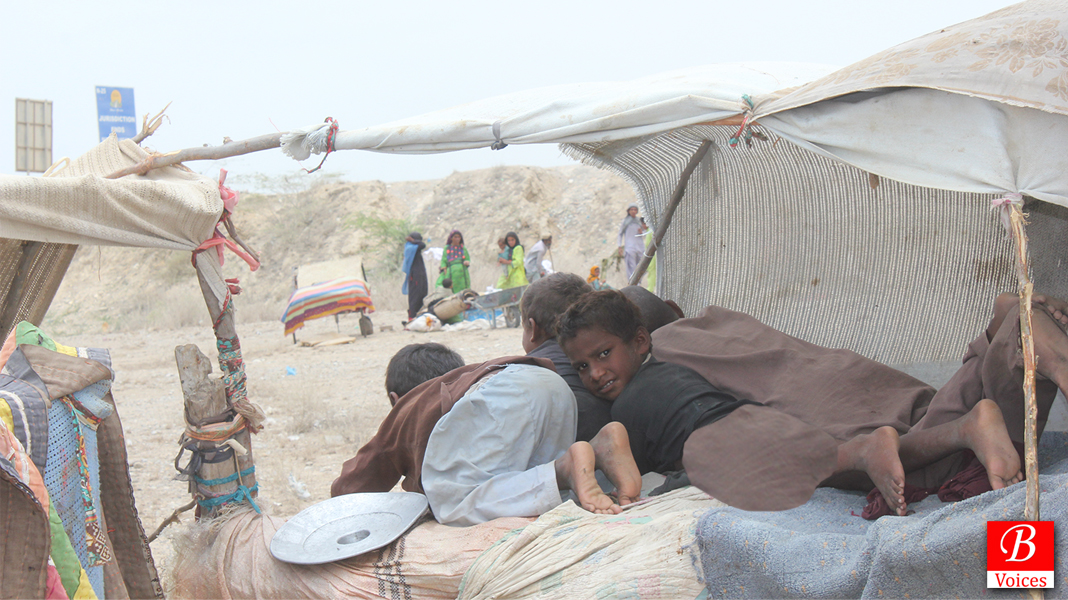
“During the reign of Zia-ul-Haque and the then prime minister Junejo, Ghot-Abad Scheme (1987) was initiated. Later, Bhutto initiated a similar scheme for peasants of Sindh. But it did not benefit the scheduled castes. Subsequently, the Department of Land and Revenue (Auqaf) was formed which, in later years, found that many lands which belonged to Hindus were either grabbed or records of which were completely obliterated,” adds Megwar.
A cursory look at the population census 2017 unfolds many facts. The population of religious minorities has declined to 3.52% of the total population in 2017 from 3.73% in 1998. While the population of scheduled castes increased overall in the country between 1998 and 2017, it declined during the same period in both Punjab (from 20,000 to 10,000 individuals) and Balochistan (from 6,800 to 3,500 individuals), according to the Centre for Social Justice white paper titled ‘Confusing Demographics of Minorities: An assessment of the Census Data in Pakistan.
The issue is not a number game either. Following the census of 2017, a report revealed that the ballot numerators were not aware of the allotment of separate boxes for the scheduled castes by the Election Commission of Pakistan (ECP).
“I asked the residents about their religion and they replied Hindus so I simply ticked them as Hindus,” an enumerator was quoted as saying in the report.
Likewise, the advocates of the rights of minorities register a similar complaint often. Ramesh Jaipal, a minority rights activist based in Punjab, says, “Scheduled castes make the majority in terms of reckoning religious minorities in Pakistan. Only 3% of Hindus belong to the upper classes while 97% are comprised of scheduled castes. Unfortunately, for some vested interests, scheduled castes are enumerated under the umbrella term Hindus, leading to disputed figures revealed in the census.”
Like the grave issue of the census, for Ramesh, the lack of registration of scheduled castes with the National Database and Registration Authority (NADRA) is one of the biggest hurdles for the members to gain land rights.
The number of scheduled-castes members registered with NADRA in Balochistan is 3,506 which is roughly equal to the total population of scheduled castes in the province revealed in the 2017 census.
“The foremost and primary right of a person is to have an identity for which one has to be registered with NADRA. Unfortunately, scheduled castes are not registered with NADRA in Pakistan depriving them of the very basic right that can make them eligible to own lands. If one is not registered with NADRA, how can she/he get residential rights?” asks Ramesh.
Remaining still in a miserable condition, however, is Popat. He has been living a nomadic life for the last seven decades now. Both Popat and his wife are diabetic. When they fall ill, they depend on the leaves of the trees growing close to their jhogis. Popat could hardly put four jhogis for his family, but he wonders whether he would not be pushed out of the land he has started to live on just three weeks ago.
Share your comments!


